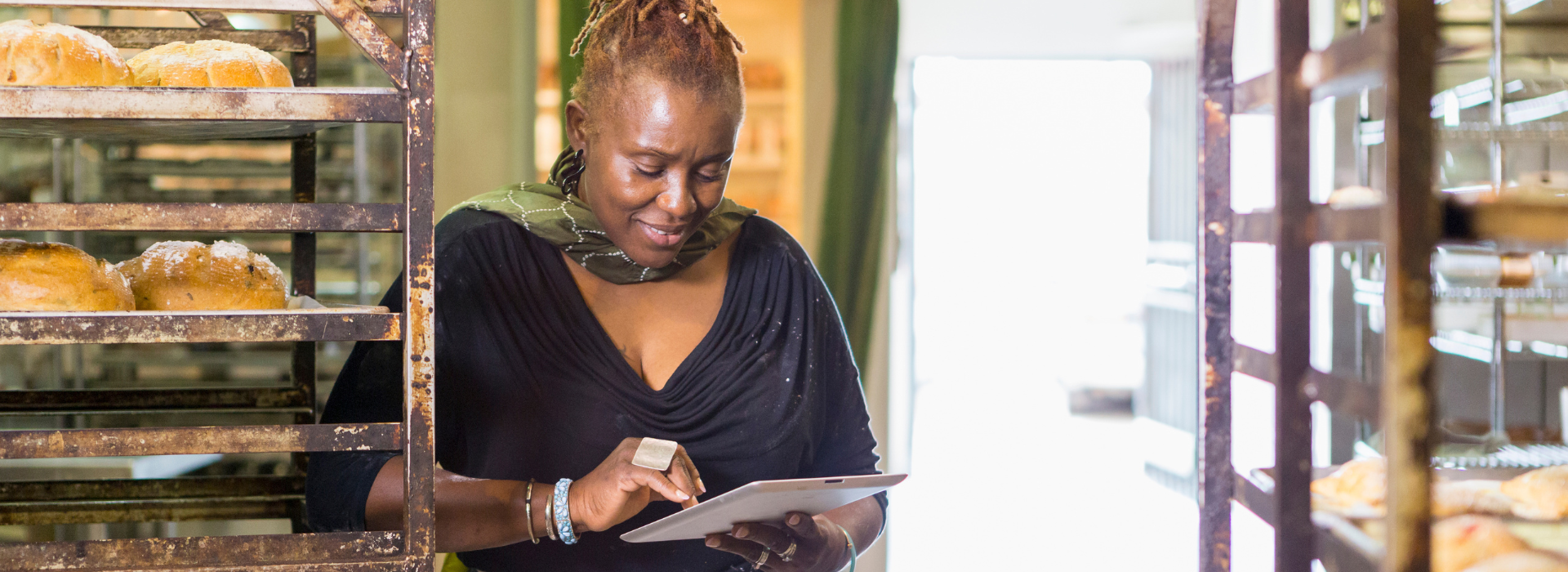When we connect women entrepreneurs to capital, the whole world wins
June 19, 2023 | By Jane Prokop
In rural Brazil, a group of women banded together to gather a wild chestnut called baru. When they had little luck selling the nuts as a snack in local markets, they came up with a plan to turn their harvest into a base for a dark, frothy Guinness-like beer. Despite their ingenuity and hard work ethic, the women were missing a key ingredient for success: access to capital needed for equipment and to distribute their first batch.

The plight of this baru cooperative is common for women entrepreneurs around the world, whether it’s a simple one-woman operation or a hot tech startup with growth potential, women-owned firms are plagued by funding challenges.
Companies with only female founders raised just 2.2% of all venture funding in the first eight months of 2021, according to an analysis by Crunchbase; this is lower than any of the five previous calendar years. Historically, women entrepreneurs are less likely to get approved for bank loans and are often subject to higher interest rates and smaller loan amounts. In developing economies, women-owned businesses make up 23% of micro, small and medium-size businesses but account for 32% of the overall financing gap.
Women entrepreneurs also do not always have banking services or digital tools, which can help grow an informal cash-based business into one with a larger financial footprint. While the proliferation of mobile money in sub-Saharan Africa has boosted financial inclusion for women, the gender gap in account ownership in developing economies overall has fallen but stands at 6%, according to the World Bank, and 740 million women — equivalent to 13% of the world’s adults — still do not have a bank or mobile money account.
Nevertheless, there’s a significant upside to supporting women-led businesses.
On a larger scale, attaining economic parity for women could add $12 trillion to the world economy, according to the World Economic Forum. If women were able to participate in entrepreneurship at the same rate as men, global gross domestic product would rise by an additional 3% to 6%, equivalent to $2.5 trillion to $5 trillion in value, according to one estimate.
Lenders would also do well by investing in women. One study found that even though female-led startups receive less than half the funding that male-founded ones do, they generate 10% more cumulative revenue. This benefits the wider community as well, creating financial security and an asset base for entire family groups and local economies.
Mastercard is working to connect women entrepreneurs to the tools they need. We recently announced the fulfillment of our pledge to connect 25 million women entrepreneurs worldwide to the solutions they need to grow their businesses, two years ahead of schedule. To meet that ambitious goal, we focused on digital acceptance of payments, access to credit and mentorship, as well as networking and other forms of expertise.
In Latin America, Mastercard co=created a new value proposition to digitize small retailers so they are able to accept electronic payments and pay suppliers digitally. For instance, we are partnering with some of the largest consumer packaged goods brands by arming their network of small mom-and-pop distributors with the ability to accept digital payments. That allows these entrepreneurs to get paid almost in real time, giving them funds with which to purchase more stock, while at the same time equipping these brands with insight into which distributors might need additional capital in order to grow.
Meanwhile, for the women harvesting baru nuts in Brazil, help for their traditional business came in a very 21st-century form. Moeda, a social investing platform and veteran of our Start Path startup engagement program, uses blockchain to link worthy entrepreneurs with investors looking for both profit and social good, and it extended a microloan that allowed the cooperative to purchase equipment and turn their harvest into Baru Beer. That beer sold out in a matter of months, netting perhaps five times what the women could have earned by selling the nuts alone. And as those newly converted Baru Beer fans will agree, unlocking the potential of these fierce entrepreneurs will benefit everyone.